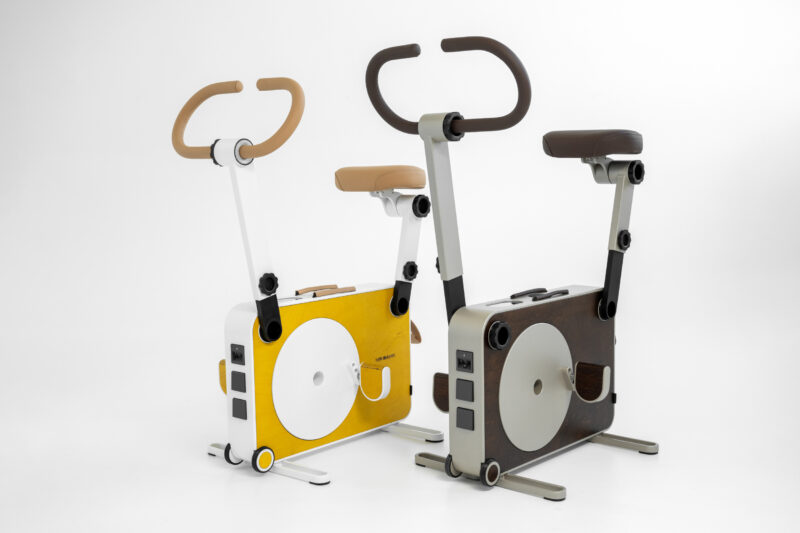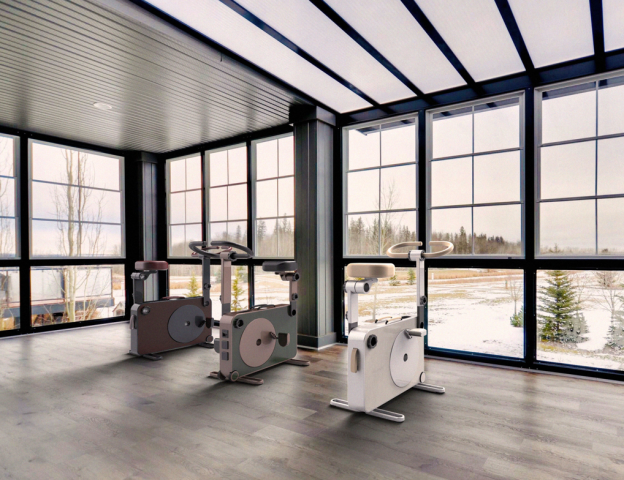Tukas EV has announced a new model of its power-generating exercise bike and storage device, the “HR Bank S750,” designed as a more accessible eco-friendly fitness trainer, for those with lower power needs who still want to pursue a greener life.
The original model “HR Bank M2000” was designed with a 2000WH battery capacity – enough to power a home’s lights for a week, in case of emergency. 15 minutes of pedaling is sufficient to charge a smartphone, while one hour can charge a laptop. Power can also be stored in a high-capacity battery, sourced from the electricity grid, a car generator, solar panels or wind power.
The new model “S750” has a lower capacity battery, optimized for those who want to use the “HR Bank” as an eco-friendly exercise bike and energy storage device, capable of charging a phone or computer using only human-generated energy. The new model is better priced, making it an option accessible to a wider audience.
“Even as more and more people are looking to live eco-consciously, not everyone’s power needs are the same,” says Aurelijus Jaškulis, COO of Tukas EV. “We found that the ability to charge a phone, computer, or desk lamp is more than enough for many. The new ‘HR Bank S750’ is designed as a lower power storage device to help such people achieve a new level of energy independence.”
The key differences between the “S750” and “M2000” are its lighter weight (41kg vs. 46kg) and its smaller-capacity battery (750Wh vs. 2000Wh). Where the battery of the original “M2000” model can charge a smartphone between 100 and 135 times, the new “S750” model can charge the same phone between 40 and 50 times.

Both “HR Bank” models are built from the same sustainable, recycled materials, using the same eco-friendly production processes, meaning all bike parts can be recycled at the end of their lifecycle. The bikes’ main body components are made from responsibly produced aluminum, while its side panels are made of FSC-certified birch plywood sourced from sustainably managed forests. Almost every part is manufactured in-house, using electricity from renewable energy sources.
Both models can be personalized to fit users’ preferences, with customisable colors, materials, and finishes. “We keep the user in mind from beginning to end,” says Jaškulis. “With fully adjustable handles, seat, and tilt angle, the easy-to-use ‘HR Bank’ can be used by young children and the elderly alike. Thanks to its trolley-style wheels, it is easily transported, and can even be attached to a desk to be used as an ergonomic workstation. With this new lower-power model, we are helping to ensure an ‘HR Bank’ can fit seamlessly into any home, whatever its power needs.”
About Tukas EV
Tukas EV is a Lithuanian based company developing clean mobility and energy solutions. In 2010, the company’s founders created “Jonelis”, the first Lithuanian electrical car. This year, Tukas EV unveiled HR Bank, an exercise bike that can harness kinetic, solar, and wind energy, or tap into surplus electricity. The energy converted into electricity charges a built-in battery, enabling access to a sustainable source of energy for both people living in remote locations and urban dwellers, seeking to cut down on non-renewable energy consumption.





